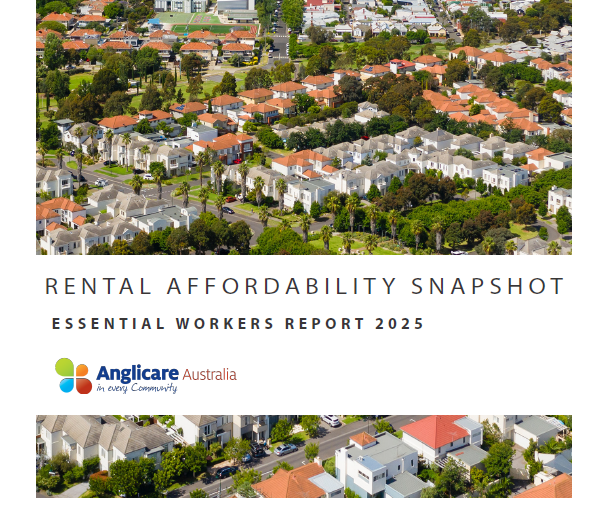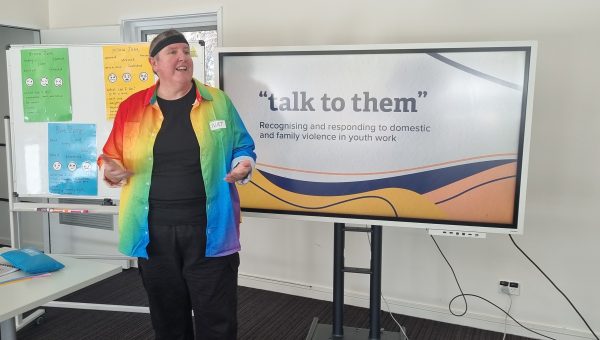Written by Anglicare CEO, Jeremy Halcrow.
“… some blandly undefined notion of corporate responsibility… [does] not constitute genuine accounts of sustainability but powerful fictions, fairy tales to help the children sleep at night.”
Rob Gray, Emeritus Professor of Social and Environmental Accounting at St Andrews University in Scotland, is describing the fundamental tension within Corporate Social Responsibility (CSR) between investor-friendly frameworks that focus on the sustainability of the company and the wider public’s concern about the sustainability of the planet and therefore the health of our society.
Sustainability measurement and reporting is now on Anglicare’s agenda. Board member Bill Anscombe and Governance Officer Emily Purvis are currently exploring the right approach for us.
With the recent commencement of Wollondilly Gardens Stage 3 construction and plans in the pipeline for affordable retirement rentals and community housing to tackle homelessness, Anglicare needs to think about sustainable approaches to development. Construction raises issues like energy usage, water consumption and waste. It would be unjust for Anglicare to develop affordable, low-cost housing that did not take environmental sustainability seriously and then left a future generation of tenants in a situation where energy consumption made their cost of living higher than necessary. There is a strong link between thinking green now and social justice for future generations.
Generally speaking, the quality of Sustainability reporting in the community and retirement sectors is poor. This sector is a laggard in CSR. Human services providers have not seen environmental risks as material to their operations. However, recent adverse media and commencement of a Royal Commission into aged care, means providers are under increased pressure to improve their CSR performance.
The first wave of sustainability reporting responded to a series of environmental catastrophies in the 1980s including the Carbide gas leak in Bophal, India and the Chernobyl nuclear explosion. Whilst CSR had been evolving since the 1950s, the 1987 Brundtland report triggered a debate that culminated in 1997 with the publication of Elkington’s Triple Bottom Line (TBL) which solidified an understanding that CSR should provide a balanced assessment of a company’s impact on “people, profits and the planet”.
Professor Rob Gray, quoted above, has explicitly criticised mainstream CSR reporting techniques based on accounting methodology, as misleading because they are designed to assure stakeholders about the sustainability of the business not the environmental sustainability of the planet. Thus he prefers the term environmental probity. Gray argues that “no business can succeed without the approval of its stakeholders as a socially and environmentally responsible entity” and so we are falsely invited to “accede to the notion that as all good businesses… are in this sense ‘sustainable’ then a planet dominated by ‘good’ businesses can probably assumed to be sustainable”. The outcome is reports that overlook social injustices within a local community and environmental impacts on a regional ecosystem. Indeed this problem may explain why so-called best-practice CSR entities like Australia’s banks could still be exposed by the Financial Services Royal Commission for extraordinarily corrupt practices in pockets of their operations.
In parallel to these developments, others have raised concerns about the cost of “green-tape” caused by the growing disclosure requirements and complexity of CSR standards regimes. Indeed, the Property Council of Australia is currently advocating “a unified common-sense sustainability reporting obligation with minimal green tape”. The resource burden of complying with complex standards is particularly acute for not-for-profits and those companies working across multiple jurisdictions. A study by Lynch-Wood and Williamson (2014) of small and medium-sized UK manufacturers found that the vast majority did little more than comply with government regulations on CSR citing lack of resources as the cause. Meanwhile concerns raised by customers and other stakeholders about environmental sustainability had minimal impact on their level of reporting.
CSR standards regimes result in reports that are not only lengthy and costly but also ‘silo-ed’. An antidote for an NFP like Anglicare could be to utilise an Integrated Reporting (IR) framework. IR’s systematic consideration of an organisation’s activities in the short, medium and longer term also embeds the long temporal scale needed to assess climate risks. It challenges any unhealthy predominance of financial metrics by assessing organisational performance holistically.
IR was nurtured in post-apartheid South Africa. To ensure peace, transparency around social equality had to be foregrounded and with this mind President Mandela established the King Commission to ground business governance in these values. The first King Report in 1994 recommended embedding justice considerations into the DNA of business through IR “formalising the need for companies to recognise that they no longer act independently from the societies and the environment in which they operate”. In the wake of King III in 2009, a “comply or explain” policy was implemented. In effect IR became mandatory for listed companies in South Africa. The impact is demonstrable. The most recent KPMG CR survey showed that 90 of South Africa’s top 100 companies produced integrated reports compared to 42 Japanese companies, the next highest national figure.
The International Integrated Reporting Council (IIRC) publishing a framework in 2013, and this philosophies history of being shaped by post-apartheid South Africa means IIRC’s framework results in more comprehensive reporting of not only environmental risks and carbon disclosures but also the related social equity and justice challenges.


